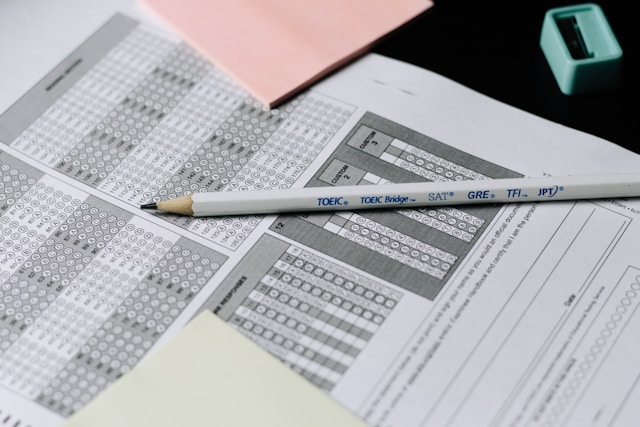As high school students approach their junior year, the pressure to excel academically and prepare for college admissions intensifies. A crucial part of this preparation involves college placement testing, namely the SAT and ACT, as well as understanding AP scores. Here’s a comprehensive guide on the differences regarding the SAT vs ACT vs AP tests.
Understanding the SAT
Why Take the SAT in Winter of Junior Year?
For many 10th graders and their families, taking the SAT during the winter of junior year is a strategic move. This early attempt allows students to become familiar with the test format and content, providing a head start in preparation. Identifying strengths and areas for improvement early on can help ease the pressure in senior year when the stakes are higher.
What Are the Benefits of Taking the SAT Early in Junior Year?
Taking the SAT early in junior year provides valuable insight into a student’s baseline performance. It allows more time to prepare for retakes, align with application deadlines, and explore scholarship opportunities tied to scores.
The Cost of Taking the SAT
The financial aspect of the SAT can be significant. Exam fees, along with additional costs for preparation courses and practice materials, can add up. Understanding these costs and exploring options for financial aid, fee waivers, or low-cost preparation resources can help manage expenses while ensuring adequate preparation.
Debunking SAT Myths
Several myths surround the SAT that can mislead students and parents. One common myth is that the SAT is an insurmountable hurdle that solely determines college admission success. Another is that high scores are solely due to innate ability rather than preparation. In reality, consistent study, practice, and strategic preparation can significantly improve scores and reduce test-related anxiety.
What Resources Are Available for SAT Test Preparation?
Students can access a wide range of preparation resources, including official SAT practice tests, online courses, tutoring services, and mobile apps. These tools help build familiarity with the format and content while providing opportunities for targeted improvement.
Understanding the ACT
Essential ACT Information for Sophomores
Sophomores should be aware of the critical differences between the SAT and ACT. The ACT includes a broader range of subjects, including science, whereas the SAT focuses more on evidence-based reading and writing, as well as math. Understanding these differences can help students choose which test aligns better with their strengths and college goals. Early preparation, such as taking practice tests and engaging in targeted study, can make a significant difference.
How Does the ACT Differ From the SAT in Terms of Format and Content?
The ACT includes sections on English, math, reading, science, and an optional writing test, while the SAT emphasizes evidence-based reading, writing, and math. The ACT’s science section is a key differentiator, making it better suited for students confident in interpreting data and scientific concepts.
When to Retake the ACT
Deciding when to retake the ACT can be a strategic decision. If a student’s score is below their target or potential, retaking the test might be beneficial. It’s essential to consider factors such as improved preparation, changes in test-taking strategies, and whether additional study time could lead to better results. Retaking the ACT with a clear plan and targeted study can help improve scores and enhance college applications.
What Strategies Can Help Improve ACT Scores?
Students can improve their ACT scores by taking full-length practice tests, focusing on weaker subject areas, and using test-taking strategies like time management and answer elimination. Enrolling in prep courses or hiring a tutor can provide additional guidance.
Understanding AP Scores
AP Scores and College Admissions
Once AP scores are back, it’s crucial for college-bound juniors and sophomores to assess their performance. High scores can enhance a college application, potentially earning college credit and demonstrating academic prowess. Conversely, lower scores should be viewed as opportunities for growth and areas to focus on in future coursework or standardized tests. Integrating AP scores into a broader strategy for college admissions is essential.
How Do AP Scores Impact College Admissions and Placement?
AP scores demonstrate a student’s ability to tackle college-level material and can influence admissions decisions. Many colleges grant credit or advanced placement for high scores, allowing students to save on tuition and graduate earlier.
Are There Any Benefits to Taking Additional AP Courses Even if the Scores Are Not Perfect?
Yes, taking AP courses showcases academic rigor and a willingness to challenge oneself, which is often valued by admissions committees. Even if scores aren’t perfect, the effort and learning experience can strengthen a student’s application.
The Debate: Are SAT and ACT a Waste of Time and Money?
There is ongoing debate about the value of the SAT and ACT. Some argue that these tests are outdated measures of a student’s potential and question their worth given the cost and preparation involved. Critics highlight that standardized tests may not accurately reflect a student’s abilities or readiness for college. However, many colleges and universities still use these scores as a factor in admissions decisions, making them a significant component of the application process.
Conclusion
Navigating the landscape of standardized testing and AP scores can be challenging, but understanding the purpose, costs, and strategies associated with the SAT, ACT, and AP exams can make the process more manageable. By starting early, preparing effectively, and addressing myths and misconceptions, students can approach these tests with confidence and better position themselves for college admissions success.














